After a disastrous 2018/19 season, Schalke will be looking to the future under David Wagner with a certain degree of optimism. Die Königsblauen finished in a disappointing 14th place last season and at times were embroiled in a relegation battle as well. Domenico Tedesco was unable to turn results around and was sacked after a 7-0 defeat to Manchester City. He was replaced by Huub Stevens who managed to keep the side in the Bundesliga. Schalke’s new boss David Wagner had a difficult season himself, being sacked as Huddersfield’s coach and the Terriers being relegated. Wagner is still considered a tactically astute coach and is regarded by the Schalke hierarchy as the man to build a side and take the club forward. This tactical analysis aims to identify the issues they faced last season, how these can be corrected and what to expect from Wagner at Schalke.
Issues faced last season
Defensive problems
The majority of Schalke’s issues revolved around the use of a three-man defence. The most commonly utilized formation was a 3-5-2 while we also saw the use of a 3-4-3. This season preview aims to highlight the issues of the same.
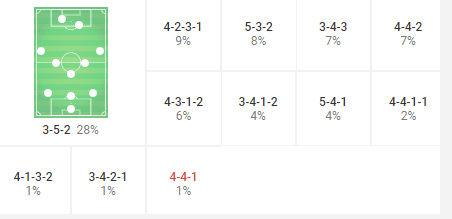
A noticeable issue was the tendency of the wing-backs to over-commit themselves and leave the defence exposed. The constant change of personnel meant that Schalke lacked chemistry and cohesion, especially between the midfielders and defenders. In a defence which utilizes wing-backs, the role of midfielders in assisting the wing-backs defensively is very important. Schalke’s most frequently utilized wing-backs were Daniel Caligiuri and Bastian Oczipka, both of whom enjoy remaining higher up the pitch.
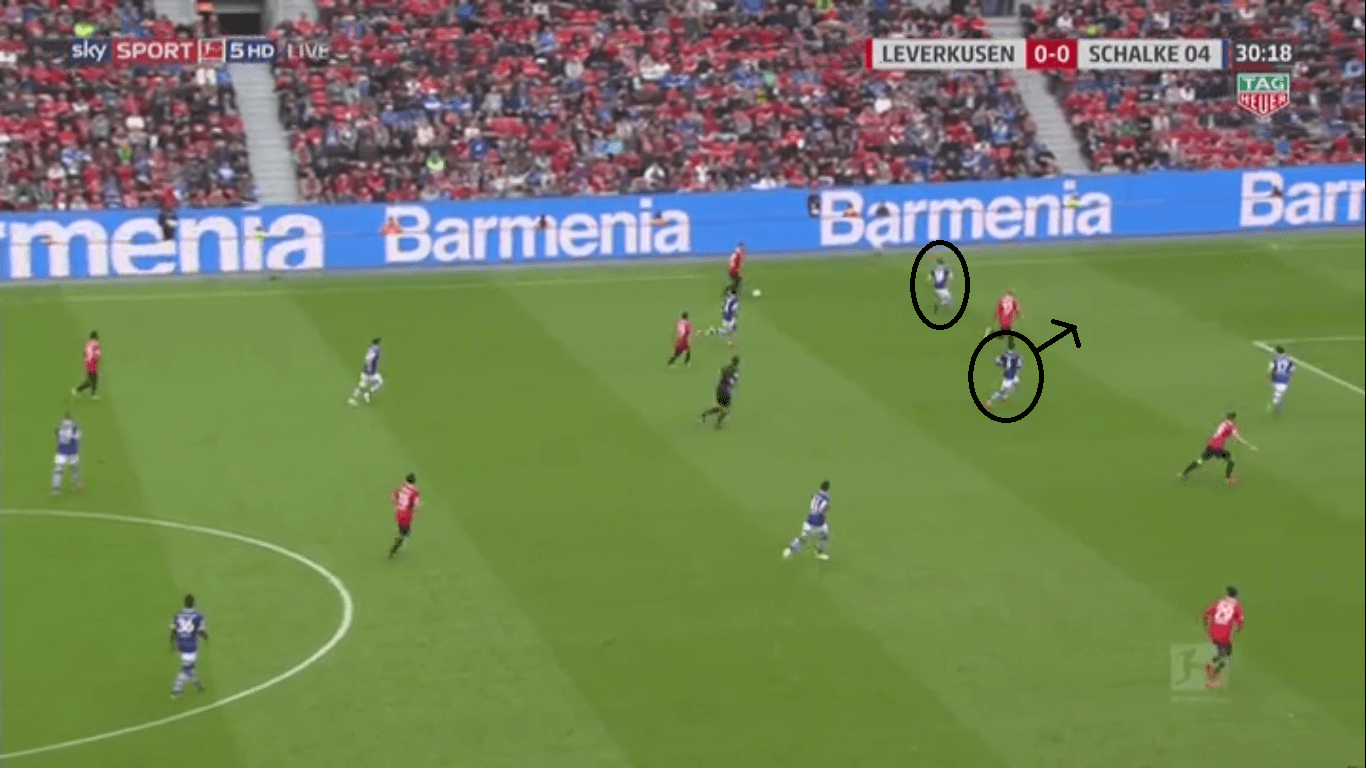
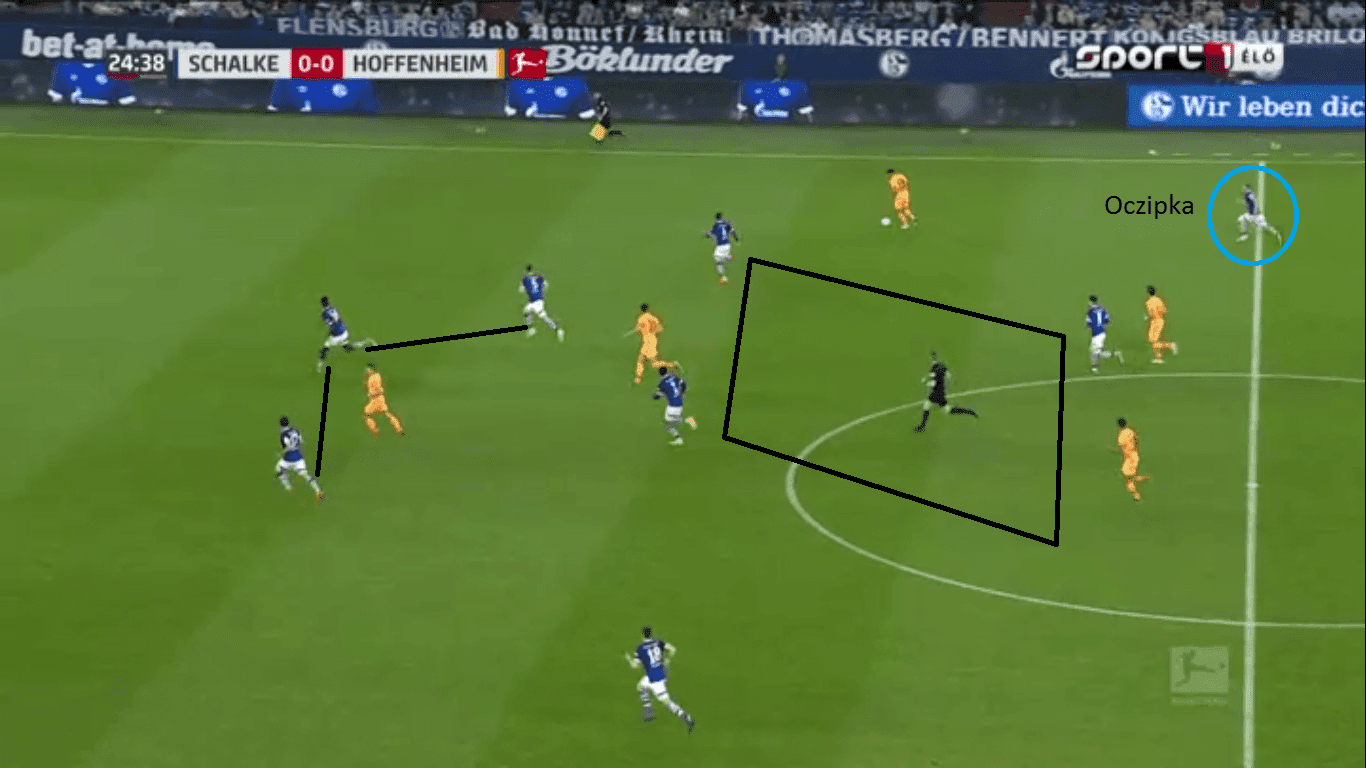
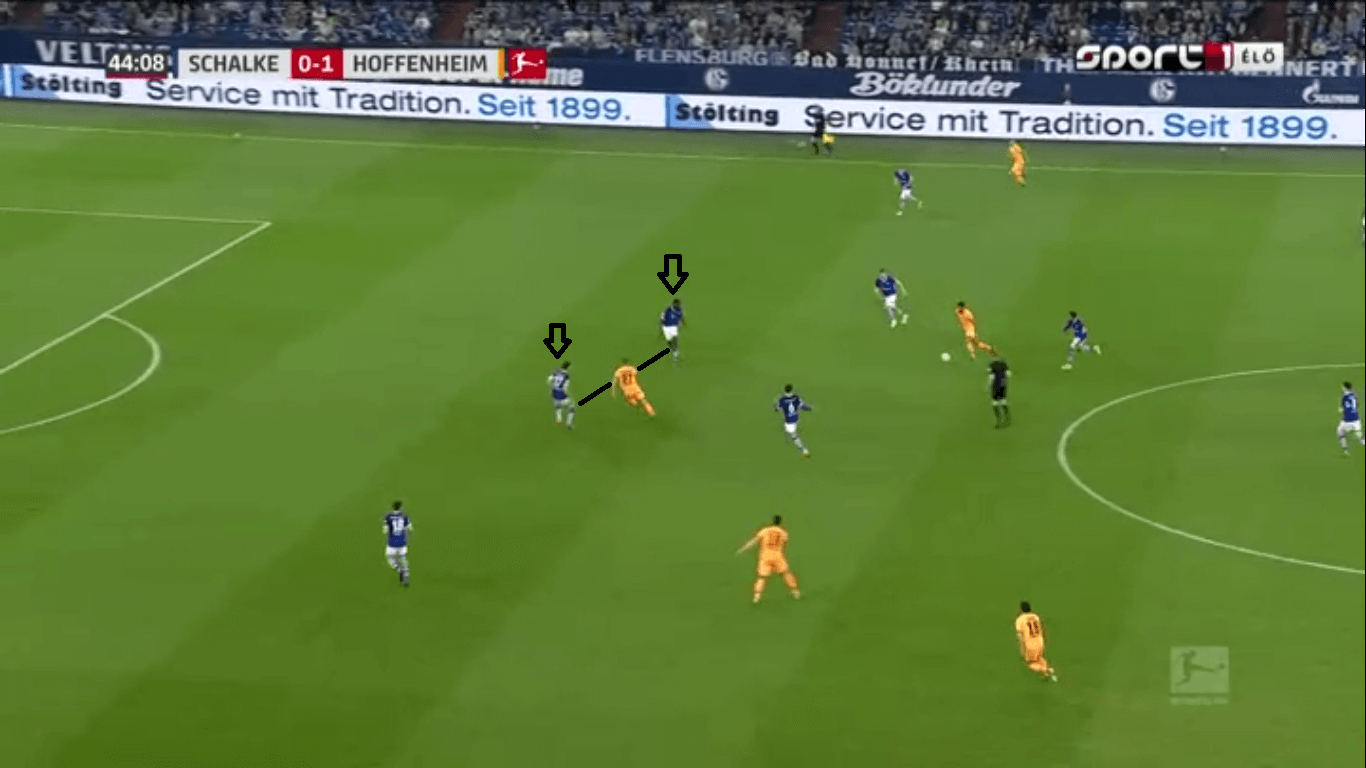
Schalke could have accommodated this had the midfielders been more proactive in their movement around the pitch. Schalke usually had players like Nabil Bentaleb, Sebastian Rudy and Omar Mascarell playing in midfield. All three are generally static central midfielders and when they formed the double-pivot in midfield, failed to provide the off-the-ball movement that such a formation would require. As a result, both the wing-backs were forced to overcompensate for the lack of support and leave the defence exposed. Schalke conceded, on average, 1.62 goals per game, a poor defensive record for a side looking to finish in a top-four spot. Schalke’s home record was disappointing as they won just 41% of their home matches and failed to score in 53% of their games played in the Veltins Arena.
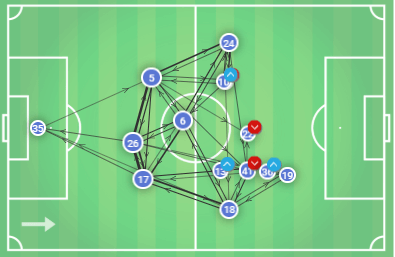
Moving forward, it would make the most sense for Schalke to switch to a four-man defence, specifically a 4-2-3-1 formation. This would provide both the full-backs with an additional winger to help them in their defensive duties but at the same time help bring more width and penetration to Schalke’s current one-dimensional attack. The Gelsenkirchen club have a number of good wide players like Alessandro Schopf, Yevhen Konoplyanka as well as the exciting Rabbi Matondo and would be wise to harness the same.
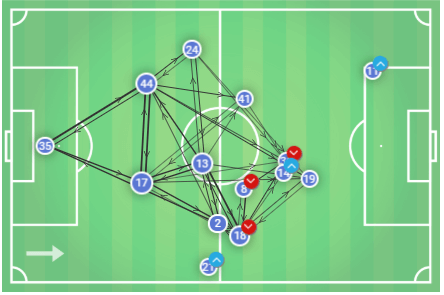
Struggles in attack
As mentioned above, Schalke struggled to link the defence with the midfield but the same can be said for the attack as well. Playing a 3-5-2 always risks the two strikers becoming isolated if the midfielders are not keen enough to progress the ball. Schalke’s primary striker Guido Burgstaller is not particularly mobile and the Austrian has seen a constant change of partners in attack as well. Last season, Schalke averaged a very poor 1.09 goals scored per game compared to the league average 1.59. Notably, Schalke’s ball retention was sub-par over the course of last season as they had only 46.9% of possession on average in the Bundesliga along with a poor pass completion rate of 76.3%.
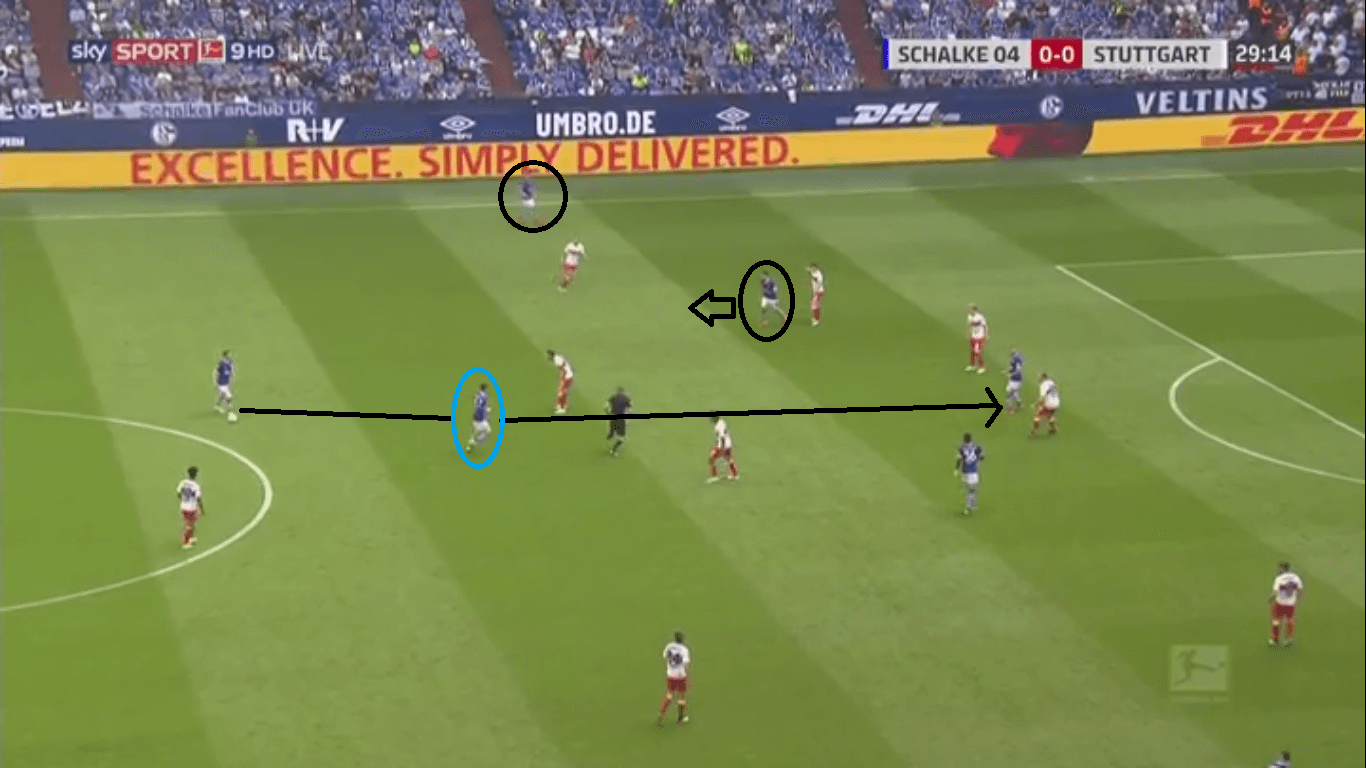
Recruitment and squad analysis
On paper, Schalke have a squad filled with talented youngsters and a few reliable, experienced performers. Much of their recruitment over the summer has targeted the deficient areas of the squad. Schalke have made three signings so far, bringing in Ozan Kabak, Jonjoe Kenny and Benito Raman. Kabak and Kenny provide some much-needed depth in defensive areas while Raman will be a key wide player for the Royal Blues as this scout report will highlight.
New signings
Ozan Kabak’s acquisition from Stuttgart is a shrewd piece of business by Schalke as the Turk enjoyed a breakthrough season. Kabak played the full 90 minutes of every game after matchday 19 in the Bundesliga, a statistic which means he is the youngest first-team regular in the league alongside Jadon Sancho. On average, Kabak records an interception every eight minutes while averaging 37.2 passes per game. His acquisition means that Schalke have an exciting young defender on their hands who is adept at playing out from the back. At the same time, given their defensive issues, Kabak is an uncompromising defender who will prioritize mitigating risk over unnecessarily complicating situations.
Jonjoe Kenny has arrived on loan from Everton to add more depth to a thin squad. Another smart signing on Schalke’s part was the transfer of Benito Raman from Fortuna. The Belgian scored 10 goals and recorded four assists last season and will bring more mobility and dynamism to Schalke’s attack.
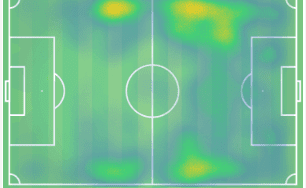
Apart from these signings, Schalke are endowed with youthful options in other areas. A positive from last season’s disastrous finish was the promotion of a number of youngsters to the first team in order to replace underperformers. Alexander Nübel will go into the season as the first-choice goalkeeper and is already being hailed as the heir to Manuel Neuer. Amine Harit will be hoping to bounce back from an injury-ridden season. Weston McKennie was one of Schalke’s better performers last season and is being tipped for the captaincy. The American’s all-round ability will be pivotal in revitalizing the attack.
How could Schalke play under Wagner?
Wagner’s tactics at Schalke will be interesting to see. The German favours a 4-3-2-1 formation and this would suit Schalke the best as opposed to a 3-5-2. However, Wagner has also utilized a 3-5-1-1 during his time at Huddersfield. Given the difference in quality between Schalke and Huddersfield, Wagner seems most likely to opt for the 4-2-3-1. A close friend of Jurgen Klopp, Wagner will definitely emphasize on pressing and luckily Schalke’s players are well suited to respond to the same. We are likely to see a more aggressive Schalke side as compared to last season’s passive one. Wagner’s side have already begun working on pressing and counter-attacking scenarios as reported by the club’s official report on their pre-season.
The linkup between the wingers/wide-forwards and full-backs in the 4-2-3-1 is a particular aspect to look out for. Hamza Mendyl and Benito Raman could form a dangerous partnership on the left flank. Schalke will need to increase their creativity which could see more attack-minded players like McKennie and Harit fit into the side as Wagner opts for mobility in midfield over two central midfielders. Wagner will also attempt to make Schalke play out from the back more often which would be beneficial to harness the technical talent present in the side. It remains difficult to predict Wagner’s preferred starting lineup as pre-season has not borne any indication of the same. The only certainty remains that Schalke under David Wagner will definitely attempt to play with more speed, intensity and fluidity.
Conclusion
In conclusion, Schalke have taken quite a risk in appointing David Wagner as a coach. The squad has a good mix of youth and experience but question marks remain whether the overall quality of the side is enough to break into the top-six consisting of vastly superior sides like Bayern, Dortmund and Leipzig along with comparatively better-equipped Leverkusen and Mönchengladbach. While this analysis has looked at how Schalke could play this season, it is hard to see the Royal Blues finishing in the top-four this season.

If you love tactical analysis, then you’ll love the digital magazines from totalfootballanalysis.com – a guaranteed 100+ pages of pure tactical analysis covering topics from the Premier League, Serie A, La Liga, Bundesliga and many, many more. Buy your copy of the July issue for just ₤4.99 here, or even better sign up for a ₤50 annual membership (12 monthly issues plus the annual review) right here.

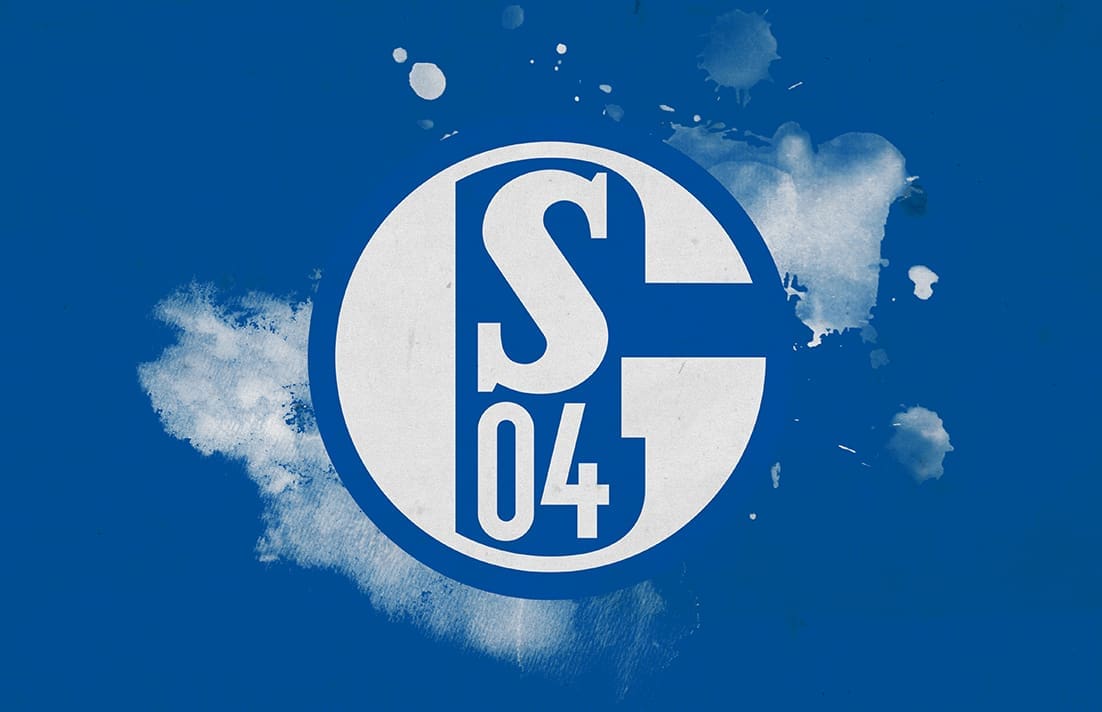
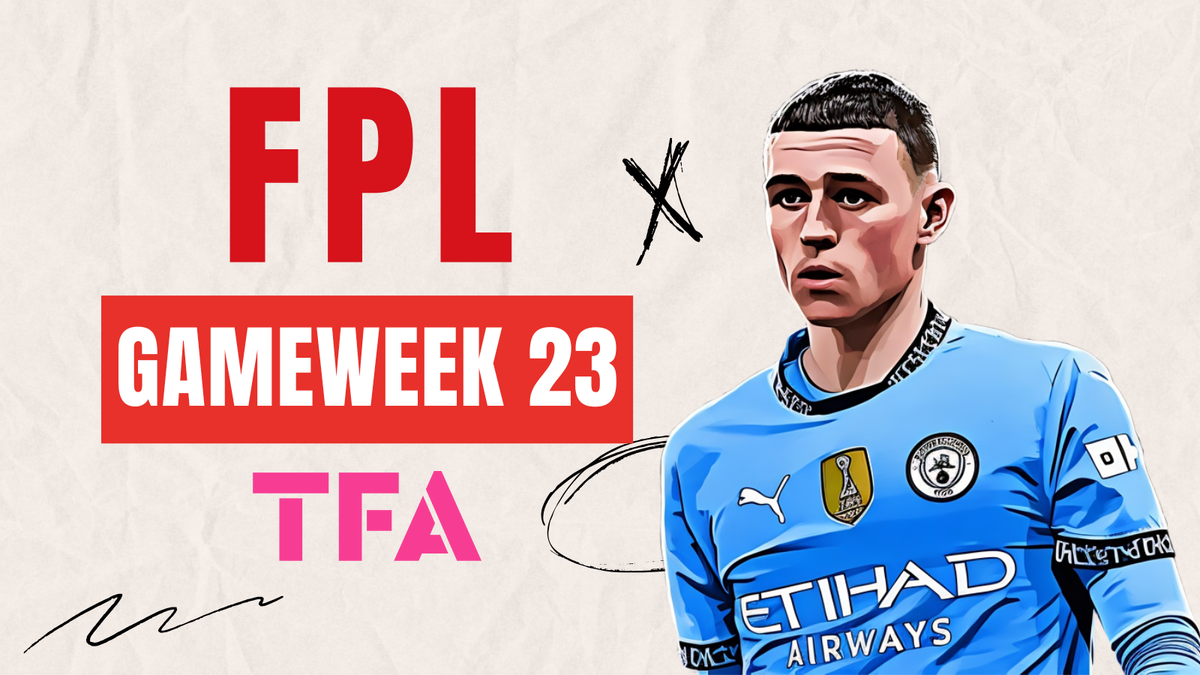
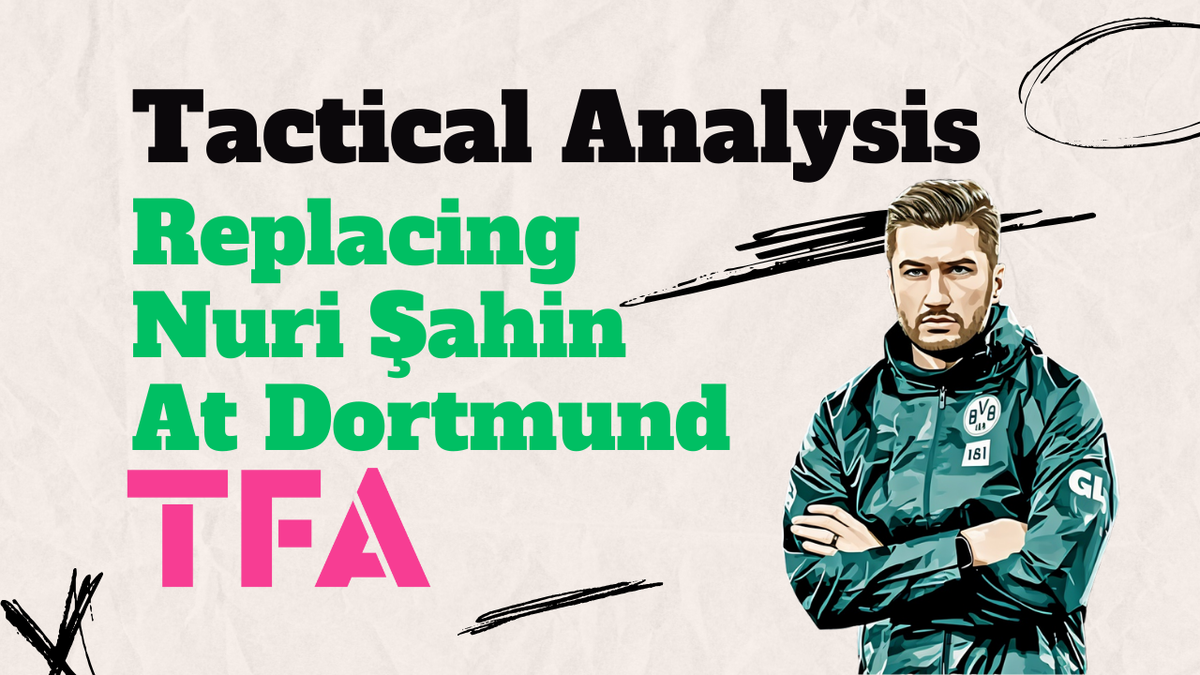
Comments